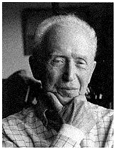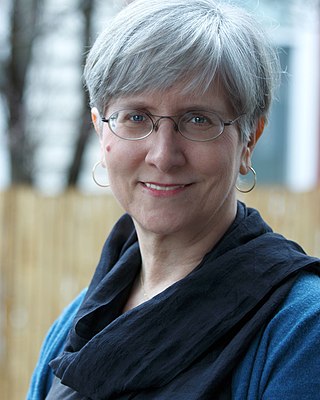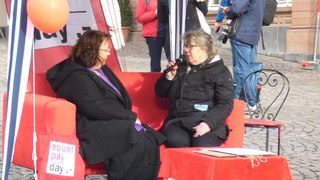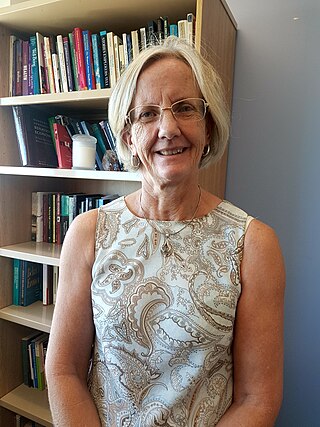
Feminist economics is the critical study of economics and economies, with a focus on gender-aware and inclusive economic inquiry and policy analysis. Feminist economic researchers include academics, activists, policy theorists, and practitioners. Much feminist economic research focuses on topics that have been neglected in the field, such as care work, intimate partner violence, or on economic theories which could be improved through better incorporation of gendered effects and interactions, such as between paid and unpaid sectors of economies. Other feminist scholars have engaged in new forms of data collection and measurement such as the Gender Empowerment Measure (GEM), and more gender-aware theories such as the capabilities approach. Feminist economics is oriented towards the goal of "enhancing the well-being of children, women, and men in local, national, and transnational communities."

Jacob Mincer, was a father of modern labor economics. He was Joseph L. Buttenwieser Professor of Economics and Social Relations at Columbia University for most of his active life.
The gender pay gap in the United States is a measure comparing the earnings of men and women in the workforce. The average female annual earnings is around 80% of the average male's. When variables such as hours worked, occupations chosen, and education and job experience are controlled for, the gap diminishes with females earning 95% as much as males. The exact figure varies because different organizations use different methodologies to calculate the gap. The gap varies depending on industry and is influenced by factors such as race and age. The causes of the gender pay gap are debated, but popular explanations include the "motherhood penalty," hours worked, occupation chosen, willingness to negotiate salary, and gender bias.

Claudia Dale Goldin is an American economic historian and labor economist. She is the Henry Lee Professor of Economics at Harvard University. In October 2023, she was awarded the Nobel Memorial Prize in Economic Sciences "for having advanced our understanding of women's labor market outcomes”. The third woman to win the award, she was the first woman to win the award solo.

Family economics applies economic concepts such as production, division of labor, distribution, and decision making to the family. It is used to explain outcomes unique to family—such as marriage, the decision to have children, fertility, time devoted to domestic production, and dowry payments using economic analysis.
Randy Pearl Albelda is an American feminist economist, activist, author, and academic who specialises in poverty and gender issues.
Marianne A. Ferber was an American feminist economist and the author of many books and articles on the subject of women's work, the family, and the construction of gender. She held a Ph.D. from the University of Chicago.
Barbara Rose Bergmann was a feminist economist. Her work covers many topics from childcare and gender issues to poverty and Social Security. Bergmann was a co-founder and president of the International Association for Feminist Economics, a trustee of the Economists for Peace and Security, and Professor Emerita of Economics at the University of Maryland and American University.

Julie A. Nelson is an emeritus professor of economics at the University of Massachusetts Boston, most known for her application of feminist theory to questions of the definition of the discipline of economics, and its models and methodology. Nelson received her Ph.D. degree in economics from the University of Wisconsin–Madison. Her work focuses on gender and economics, philosophy and methodology of economics, ecological economics, and quantitative methods. Nelson is among the founders and the most highly cited scholars in the field of feminist economics.
New classical macroeconomics, sometimes simply called new classical economics, is a school of thought in macroeconomics that builds its analysis entirely on a neoclassical framework. Specifically, it emphasizes the importance of rigorous foundations based on microeconomics, especially rational expectations.

Demographic economics or population economics is the application of economic analysis to demography, the study of human populations, including size, growth, density, distribution, and vital statistics.
Katherine Jane Humphries, CBE FBA, is a Fellow of All Souls College, University of Oxford with the Title of Distinction of professor of economic history. Her research interest has been in economic growth and development and the industrial revolution. She is the former president of the Economic History Society and the current vice-president of the Economic History Association.
Intra-household bargaining refers to negotiations that occur between members of a household in order to arrive at decisions regarding the household unit, like whether to spend or save or whether to study or work.

The gender pay gap or gender wage gap is the average difference between the remuneration for men and women who are employed. Women are generally found to be paid less than men. There are two distinct measurements of the pay gap: non-adjusted versus adjusted pay gap. The latter typically takes into account differences in hours worked, occupations chosen, education and job experience. In other words, the adjusted values represent how much women and men make for the same work, while the non-adjusted values represent how much the average man and woman make in total. In the United States, for example, the non-adjusted average woman's annual salary is 79–83% of the average man's salary, compared to 95–99% for the adjusted average salary. The reasons for the gap link to legal, social and economic factors. These include having children, parental leave, gender discrimination and gender norms. Additionally, the consequences of the gender pay gap surpass individual grievances, leading to reduced economic output, lower pensions for women, and fewer learning opportunities.

The International Association for Feminist Economics (IAFFE) is a non-profit international association dedicated to raising awareness and inquiry of feminist economics. It has some eight hundred members in over 90 countries. The association publishes a quarterly journal entitled Feminist Economics.
Robin L. Bartlett is a professor of economics at Denison University. She was among the founders of the International Association for Feminist Economics (IAFFE), and served as its president from 2005 to 2006.

Yana van der Meulen Rodgers is a professor in the Department of Labor Studies and Employment Relations in the School of Management and Labor Relations at Rutgers University,. She also works regularly as a consultant for the Asian Development Bank, the World Bank, and the United Nations. She has authored numerous journal articles in economics and has written two books. From 2018 to 2024 she served as Faculty Director of the Center for Women and Work at Rutgers, and she was the president of the International Association for Feminist Economics (IAFFE) from 2013 to 2014.

Siobhan Austen is an Australian economist and was a Professor of Economics and discipline lead of Economics at Curtin University until December 2020.
Robert Allen Moffitt is an American economist; he is currently the Krieger-Eisenhower Professor of Economics at Johns Hopkins University. His areas of research include the economics of tax and transfer programs, especially welfare programs, the analysis of earnings instability in the labor market, the economics of the family, and applied microeconometrics.








